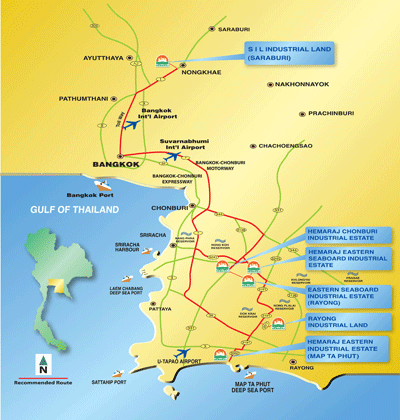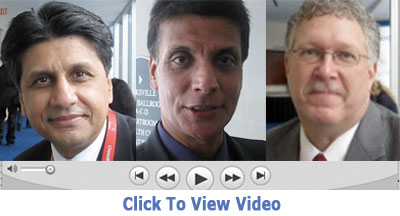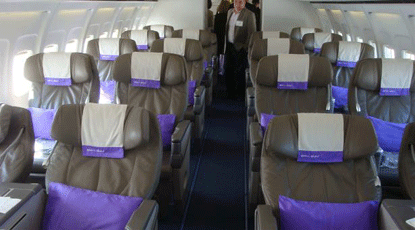Thailand Growth Challenged
  Just
as Thailand finishes celebrating its national holiday, The Songkran
Festival (Thai New Year) 13-15 April and hope earlier in the year that
some bright signs for the economy of Thailand were returning, hope has
been dimmed that a key driver, the tourism industry has been alerted
after the worst political violence in nearly two decades left 21 dead
and 874 injured in and around Bangkok last week. Just
as Thailand finishes celebrating its national holiday, The Songkran
Festival (Thai New Year) 13-15 April and hope earlier in the year that
some bright signs for the economy of Thailand were returning, hope has
been dimmed that a key driver, the tourism industry has been alerted
after the worst political violence in nearly two decades left 21 dead
and 874 injured in and around Bangkok last week.
Now with many countries, including most
recently Hong Kong, warning against travel to Thailand, a dull reality
is setting in that without its house in order, Thailand may slip back
into a self-made abyss.
But some still hope that things can be
brought to calm once again.
At the beginning of last year, the prospects
were somewhat bleak for the Thai economy, already deep in recession
and even with ongoing civil upheaval in the country had been well on
its way to recovery.
Though Thailand's economy contracted by
2.8% year-on-year in the third quarter, the shrinkage was far less than
the 7.1% in the first three months of 2009 or the 4.9% in the second
quarter.
Bank of Thailand earlier this year said
2009 fall in GDP was around 3% for the year compared to 2008, while
2010 could witness economic growth of between 3.3% and 5.3%.
There are a number of signs that the Thai
economy had been moving forward: consumer confidence was on the rise
and a key indicator of economic health - automotive sales – has
been steadily on the increase.
At least some of the growth being seen
can be attributed to the $3.5bn stimulus package that was rolled out
by the government early last year aimed to increase spending through
a mix of cash payments to low-income earners, tax cuts, education loans,
and subsidies for transport and utilities.
Even more significant to bolstering the
longer-term health of the economy was the $39bn spending program that
the government launched late last October.
Set to run for three years, the scheme
foresees major investments in transportation, logistics, health care
and education projects, which will strengthen Thailand's economic infrastructure
for the future while creating direct jobs and boosting capital flows.
Help for Thailand's economy also continues
to flow in from abroad, with increasing export orders after a sharp
drop in the first half of last year.
Another boost from overseas had been realized
via Thailand's crucial tourism industry. Hit hard late in 2008 by waves
of protests that caused many prospective visitors to think twice about
holidaying in the country, as well as by the global recession eating
into the trade, the tourism sector was showing signs of solid recovery
as 2009 came to a close.
By the end of last year, Thailand Tourism
Authority of Thailand (TAT) said 2009 delivered about 14.1m visitors
on the back of strong bookings during the final month of the year.
While there are strong indicators that
the Thai economy is moving towards recovery, there are also a number
of factors that can slow or even stall this progress in 2010.
As example last September, a Thai Court
issued an injunction ordering work on projects being built or those
already completed at the Map Ta Phut Industrial Estate in Rayong Province,
south of Bangkok, be halted as
they did not comply with existing environmental and health regulations.
The ruling, in response to a petition
tabled by local residents and non-government organizations, directly
affects at least 65 separate projects, with a total value of around
$12bn.
Various reports showed the damage to the
economy, including an analysis by the state's Fiscal Policy Office suggested
that shutting down Map Ta Phut could cut Thailand's GDP by between 0.5%
and 1% and cost as many as 100,000 jobs.
Today the saga was no clearer to resolution,
with the committee set up by the government to draft new industrial
development guidelines still to table its findings.
Last December 2 the Supreme Administrative
Court upheld the lower court's ruling on suspending work
at Map Ta Phut.
As you read this, amidst prospects that
the uproar could impact Thailand for the next ten years Map Ta Phut
investors are now also chiming into the grief felt by many at the spectacle.
Also threatening to tarnish the achievements
of Thai economy are the headline making and tourist frightening protest
and civil violence as supporters of ousted former premier Thaksin Shinawatra
have recently been taking to the streets the most in ongoing protest
against the government of Prime Minister Abhisit Vejjajiva.
Gordon
|






